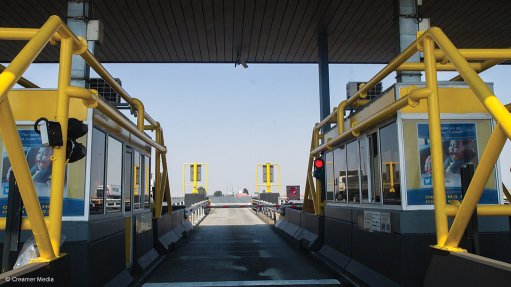Exporting to the UK post Brexit
Without a shadow of a doubt, the most overused portmanteau in the world today is ‘Brexit’, derived from ‘British’ and ‘exit’. Its use evokes a range of emotions. Brexit’s origin is attributable to the June 23, 2016, British referendum in which 51.9% of voters supported the UK, including the territory of Gibraltar, leaving the European Union (EU) on March 29 this year. This date was decided on after the UK government invoked Article 50 of the Treaty on the EU, which states that “any member State may decide to withdraw from the [EU] in accordance with its own constitutional requirements”. In subsequent deliberations between the UK government and the EU, this deadline was extended to October 31.
Instead of debating whether Brexit will ever take place, it would be far more worthwhile for South African businesses to prepare for a post-Brexit situation. Actually, it would be preferable to prepare for a ‘hard Brexit’, which implies that the UK would leave the EU without a deal. There is, arguably, little value in South African businesses preparing for a ‘soft Brexit’, where the UK would leave the EU with some sort of a deal.
By preparation, I am by no means proposing the exclusive assistance of a consultant, as there is a lot of groundwork that your business could do itself. You would not be limited in terms of options for finding the necessary information. What you might not find is a centralised source of information.
This challenge has been identified by the European Commission (EC), which has updated its Market Access Database (MADB) (https://madb.europa.eu/madb/) to address this. The EC has included in its MADB detailed information on rules adopted by UK authorities that would apply to exports from the EU in the event of a no-deal Brexit. Just in case you, as a South African businessperson, believe that it would not apply to you, bear in mind that South Africa is not offered any merchandise trade preferences by the UK. Instead, the trade preferences that South Africa enjoys are stipulated by the EU-Southern African Development Community (SADC) Economic Partnership Agreement.
Given the intertwined history of South Africa and the UK, one would have expected that the UK would afford South Africa trade preferences, but on January 1, 1973, the UK joined the European Economic Community, as it was called then, thus leaving member countries of the Commonwealth of Nations outside what is now the EU fold, requiring them to fend for themselves. If you need reminding, the Commonwealth of Nations, commonly known as the Commonwealth, and historically the British Commonwealth, is a political association of 53 countries, nearly all of which were former territories of the British Empire. It would be interesting to observe whether these countries would speedily engage with the UK and conclude preferential trade agreements with it.
Although it is quite possible, if media reports are to be believed, that South Africa would sign some sort of preferential trade agreement with the UK, it would no doubt also want to preserve the preferences it enjoys from the EU.
So, to prepare for any eventuality, South African businesses might want to consider the resources provided in the EC’s MADB. If you have never heard of, or even used, the MADB, there is no time like the present to do so. The MADB affords eight categories of information, namely: (i) duties and taxes on imports of products into specific countries; (ii) procedures and documents required for customs clearance in the partner country; (iii) statistics on trade flows between EU and non-EU countries; (iv) trade barriers affecting your exports; (v) food safety/animal health/plant health measures; (vi) preferential agreements and rules of origin; (vii) services for small, medium-sized and microenterprises; and (viii) country trade information.
Access to the EC’s MADB is free. It is regularly updated. When I viewed it on April 28, it had been updated only three days earlier.
Article Enquiry
Email Article
Save Article
Feedback
To advertise email advertising@creamermedia.co.za or click here
Press Office
Announcements
What's On
Subscribe to improve your user experience...
Option 1 (equivalent of R125 a month):
Receive a weekly copy of Creamer Media's Engineering News & Mining Weekly magazine
(print copy for those in South Africa and e-magazine for those outside of South Africa)
Receive daily email newsletters
Access to full search results
Access archive of magazine back copies
Access to Projects in Progress
Access to ONE Research Report of your choice in PDF format
Option 2 (equivalent of R375 a month):
All benefits from Option 1
PLUS
Access to Creamer Media's Research Channel Africa for ALL Research Reports, in PDF format, on various industrial and mining sectors
including Electricity; Water; Energy Transition; Hydrogen; Roads, Rail and Ports; Coal; Gold; Platinum; Battery Metals; etc.
Already a subscriber?
Forgotten your password?
Receive weekly copy of Creamer Media's Engineering News & Mining Weekly magazine (print copy for those in South Africa and e-magazine for those outside of South Africa)
➕
Recieve daily email newsletters
➕
Access to full search results
➕
Access archive of magazine back copies
➕
Access to Projects in Progress
➕
Access to ONE Research Report of your choice in PDF format
RESEARCH CHANNEL AFRICA
R4500 (equivalent of R375 a month)
SUBSCRIBEAll benefits from Option 1
➕
Access to Creamer Media's Research Channel Africa for ALL Research Reports on various industrial and mining sectors, in PDF format, including on:
Electricity
➕
Water
➕
Energy Transition
➕
Hydrogen
➕
Roads, Rail and Ports
➕
Coal
➕
Gold
➕
Platinum
➕
Battery Metals
➕
etc.
Receive all benefits from Option 1 or Option 2 delivered to numerous people at your company
➕
Multiple User names and Passwords for simultaneous log-ins
➕
Intranet integration access to all in your organisation


















